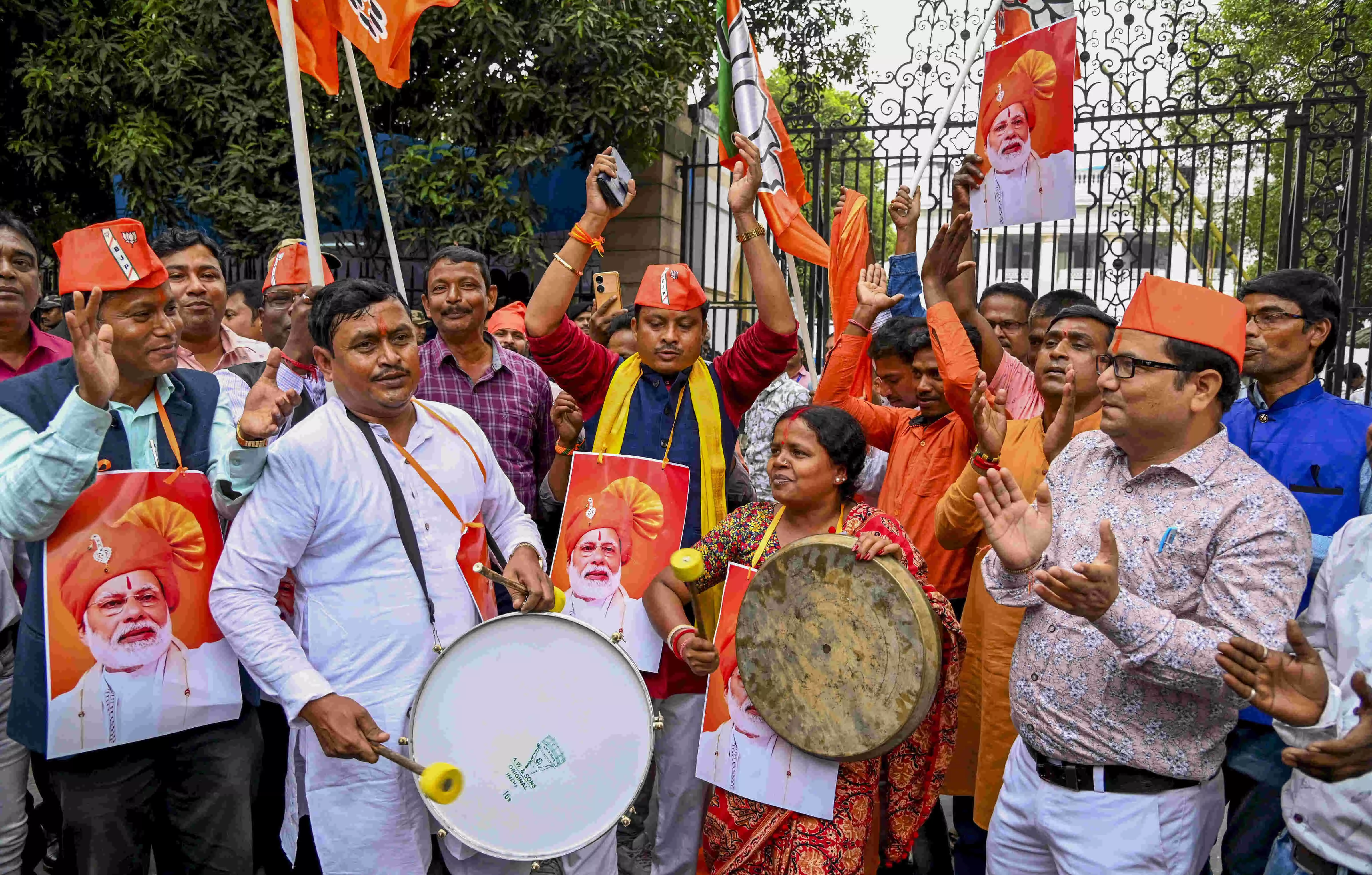Decisive mandate

The results of the freshly concluded assembly elections have sent decisive signals ahead of the general elections 2024. The BJP has unequivocally consolidated its position in the Hindi heartland by retaining the vulnerable Madhya Pradesh and dethroning its principal opponent, the INC, from two of its last remaining bastions — Chhattisgarh and Rajasthan. The BJP won 115 out of 200 seats in Rajasthan, 164 of 230 seats in Madhya Pradesh, and 54 of 90 seats in Chhattisgarh. However, for the time being, India’s geographical south remains a far dream for the saffron party as the INC has raced ahead of it to fill the space created by BRS’ retreat in Telangana. Despite this silver lining, the INC, obviously, is finding itself in a tight spot ahead of the general elections — both individually and in the context of the I.N.D.I.A alliance. Meanwhile, the BRS that placed itself synonymous with Telangana statehood and regional identity has faltered on account of allegations of dynastic politics and corruption. The most prominent among the factors that led to the sweeping victory of the BJP in the Hindi heartland has been the Modi factor. This is indeed a worrying sign for the opposition bloc, mainly for the INC. Usually, the state assembly elections are dictated by regional issues, with state-level leaders taking the lead. Ironically, BJP’s shining performance has come in defiance of this norm. In all the three states it has won, the BJP took the risk of sidelining regional satraps. The risk looks more pronounced when seen in the context of failure of the BJP in Karnataka where it had unleashed its all-influential central leadership in the election campaign. The recent victory in Rajasthan, Madhya Pradesh and Chhattisgarh was crucial for the BJP because it had to undo the perception of waning popularity of the party’s central leadership, particularly Narendra Modi, after Karnataka elections. Fortunately, for the BJP, the risk of projecting Modi’s face at the cost of sidelining leaders like Shivraj Singh Chauhan, Vasundhara Raje and, to an extent, Raman Singh, has paid rich dividends. Undoubtedly, Narendra Modi’s popularity may have far greater appeal in the general elections than it had in recently concluded assembly elections. From here on, the BJP just needs to focus on maintaining this fresh momentum. For the INC that had gained some political ground after victories in Himachal Pradesh and Karnataka, the road ahead appears quite tough. All of a sudden, the momentum gained after Rahul Gandhi’s pan-India Bharat Jodo Yatra appears to have slowed down. Among the underlying factors behind this debacle, the most prominent one is a lack of cohesive agenda. The INC also lacks a resounding organisational structure when compared to the BJP. Moreover, the deftness with which the BJP has been reading the pulse of distinction lines characterising caste, gender and religion across electorates is much superior to INC’s understanding of the same. Though the INC raised a loud cry for pan-India caste census, its call was not matched by the political representation of varied social groups in its own organisation. Elections cannot be won merely on the basis of rhetoric; political perception on the ground is shaped by tangible actions aimed at reaching out to the electorates. The BJP managed to make a timely assessment of the rising relevance of women’s votes. The saffron party very specifically targeted the female electorate, and successfully so. In addition, it appears to have gained a stable base among scheduled castes and scheduled tribes votes. To top everything up, the BJP has its proven tactic of deploying communal narrative that resonates across the caste groups amongst the Hindus in India. Nevertheless, the INC, in immediate history, has displayed that it still has the knack and organisational capability of turning the tide and winning elections. It needs to capitalise on its strengths. Rather than merely being boisterous and loud against the BJP on every passing issue, the INC needs to be more nuanced and imaginative in its strategy. The party still has a long ground to cover, and the time left at its disposal is strictly limited. As the Modi-led BJP is eying a hattrick in 2024 general elections, the INC will have to rework the entire strategy and consolidate its appropriate position in the I.N.D.I.A alliance. Much will depend on INC’s stance when it comes to ensuring that the alliance doesn’t falter ahead of elections. South thus far has been a silver lining for the INC; it should capitalise on it while seeking to alter on-ground perceptions in the Hindi heartland. The oncoming Maharashtra elections will be a litmus test for the party in the west while it can do just little in Gujrat. Away from the INC-BJP binary, KCR’s BRS has met a decisive fate in the newest state of India. Devoid of any strong ideological base, the BRS may find it difficult to recuperate from the recent downfall in Telangana. To sum up, the BJP has been richly rewarded by electorates in the recently concluded assembly elections, the INC is finding itself in a tight spot, and the chances of BRS have suddenly started to appear bleak.



